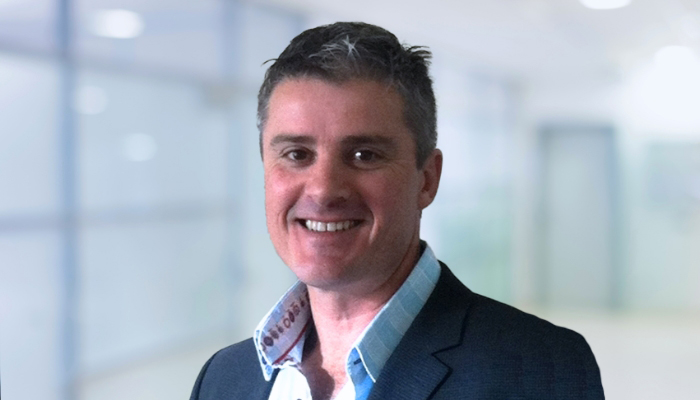A passionate advocate for people with disabilities
04 March 2024

David McConnell.
David McConnell is a professor in the Department of Occupational Therapy at the University of Alberta’s Faculty of Rehabilitation Medicine. An alumnus of the University of Sydney, McConnell teaches graduate-level courses on research and scholarly practice; disability theory and politics; and ecocultural theory and the project of everyday family life.
McConnell leads a multidisciplinary research group called the Family and Disability Research Collaborative, which focuses on parents, children and youth who experience intellectual and developmental disabilities.
We caught up with McConnell to learn more about him and his research.
What is your area of research and why is it important to you?
I am a family and disability researcher. My research in this field dates back to the early 1990s when I was employed as a research assistant on a project investigating the support needs of parents with intellectual disability. Their stories — and the systemic discrimination they face, resulting in high rates of child custody deprivation — continue to motivate my research today.
What is the most rewarding aspect of your work?
People open up their lives to us so that we, as researchers, can learn from their experiences and share this knowledge with others. This is rewarding. I feel privileged and, at the same time, obligated to handle their stories with care. I also get to work with some incredible people around Canada and in other parts of the world — researchers, practitioners and activists — many of whom have lived experience of disability. We come together in solidarity, committed to the same goal of promoting the full inclusion of persons with disabilities in social life.
What do you find the most challenging?
Over the years we have seen how our research can make a positive difference. Notably, our research has been extensively cited in the U.S. Supreme Court. At the same time, we know we are dealing with an evidence-resistance strain of disablism, and that is challenging! Wrong assumptions about persons with disabilities (such as assumed parental incapacity) are culturally deep-seated, and sometimes it can seem like no amount of evidence will correct these. But as my mentor once said, “It’s like water on stone.” That is, it can take the persistent drip, drip of evidence, as opposed to the force of any one study, to wear away deep-seated prejudices. Perseverance is the lesson.
Where do you hope your research will be in five to 10 years?
There are so many pressing research questions! In 10 years, I hope we will have better answers to big questions such as “How can we ensure that children, young people and adults with disabilities have the means necessary, including opportunity and support, to make choices and participate in decisions affecting their lives?” A related question is “How can we build capacity, within health and social care systems, to implement the United Nations Convention on the Rights of Persons with Disabilities?” This includes building capacity to eliminate discrimination against persons with disabilities in all matters relating to marriage, family, parenthood and relationships (Article 23).
We are now working with our community partners to address concerns regarding support services for women with disabilities who have survived intimate partner violence (IPV). Women with disabilities are many times more likely than their non-disabled peers to experience IPV, and due to a lack of disability-inclusive support services, they are more likely to experience repeated victimization. The question is, “How can we make support services for IPV survivors more accessible and inclusive, that are responsive to the lived experience, practical realities, priorities and preferences of women with disabilities?”
What’s the No. 1 piece of advice you give your graduate students?
Apart from the obvious “Think for yourself,” I really like “Don’t let the perfect be the enemy of the good,” but I am terrible at modelling this. Then there is “Keep the main thing the main thing” (rabbit holes are hard to resist), and “Be bold, and mighty forces will come to your aid,” both of which came from my own mentor. I am not really sure about the “mighty forces,” but I encourage my students to be bold. Brave might be a better word. Scientists have to be brave.